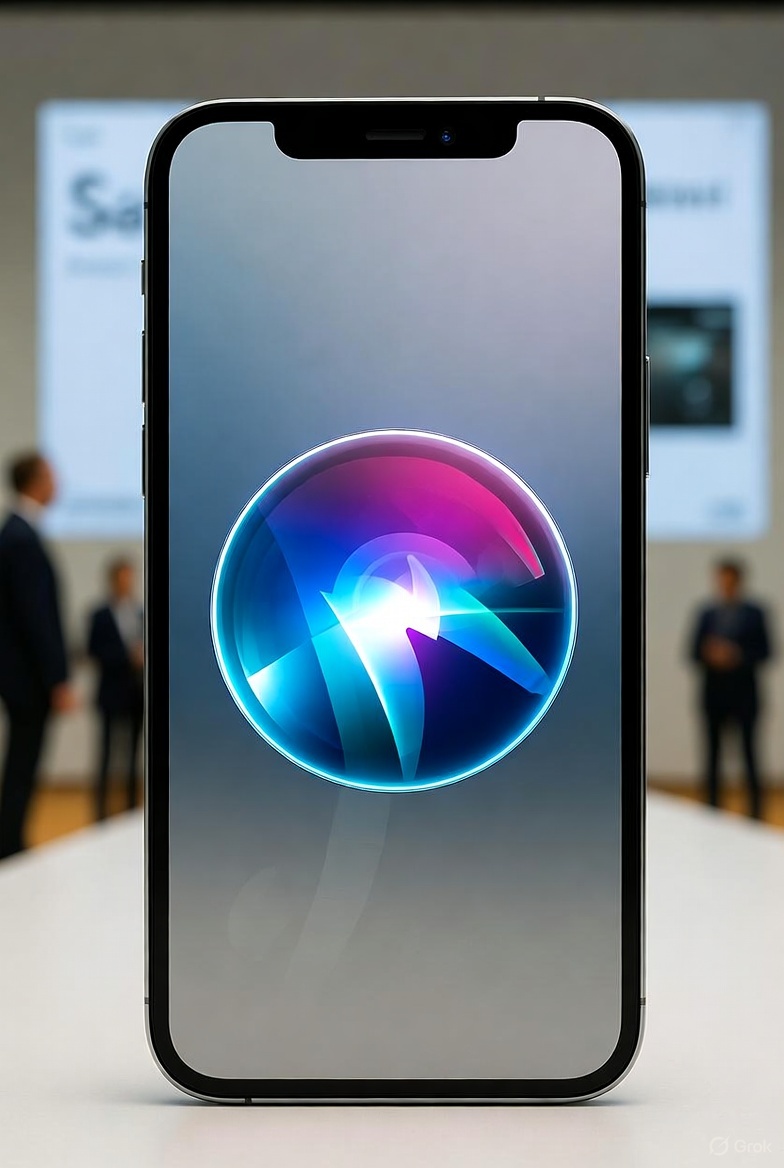
Apple’s New Siri: From Solo Act to AI Ensemble
Apple’s long-awaited “new Siri” might finally see the light of day in 2026 — but not as the fully homegrown AI the company once promised. With reports of Google’s Gemini quietly powering Siri’s smarts, Apple’s strategy seems to be shifting from competition to collaboration.
Apple’s ambitious plan to reinvent Siri has been one of the most closely watched—and doubted—projects in the company’s recent history. After years of overpromising and underdelivering, CEO Tim Cook’s cautious optimism during Apple’s latest earnings call has rekindled faint hope that the long-delayed “new Siri” might actually arrive in 2026.
“We’re also excited for a more personalized Siri. We’re making good progress on it,” Cook said. “And as we’ve shared, we expect to release it next year.”
It’s not exactly a mic-drop announcement. But in the wake of Apple’s earlier embarrassment—when the iPhone 16 keynote promised more than it could deliver—even that modest confidence feels significant. The company seems to be moving from hype to humility, and that’s a welcome shift.
A Quiet Partner: Google Gemini
The real shocker came from Bloomberg’s Mark Gurman, who revealed that much of the new Siri’s intelligence won’t be homegrown at all. Instead, Apple plans to rely on Google’s Gemini AI models, hosted securely on Apple’s Private Cloud Compute servers.
That’s a seismic change in strategy.
For years, Apple positioned itself as the privacy-first, walled-garden alternative to the data-hungry AI titans. But the world has moved fast — and the Cupertino giant may have finally realized that catching up to ChatGPT, Claude, or Gemini directly was a losing battle.
By quietly integrating third-party AI models under Apple’s strict privacy framework, the company can deliver smarter results without compromising its brand promise. Siri will soon be able to handle personal tasks like “find the book recommendation from Mom” by analyzing on-device data and connecting the dots across apps and messages.
Why Apple’s Pivot Makes Sense
In the race toward AI dominance, Apple was at risk of being left behind. While ChatGPT, Claude, and Gemini continue to redefine what conversational AI can do, Siri has remained frustratingly static—good for timers and weather, bad for everything else.
Instead of playing catch-up, Apple seems to be adopting a hybrid approach:
use the best of existing AI tech, but wrap it in Apple’s design and privacy ethos.
This could be the best of both worlds—leveraging the raw intelligence of models like Gemini while preserving Apple’s unique advantage: deep ecosystem integration and user trust.
The Integration Challenge
Still, optimism should be tempered. Integrating third-party models into Apple’s ecosystem will be a massive technical and UX challenge. Siri’s intelligence might live on Gemini’s servers, but its soul must still feel Apple-made—fluid, consistent, and intuitive.
And then there’s the timing. Even if Apple nails the integration, Siri will debut into a world where the bar for AI assistants will be far higher than it is today. By 2026, Alexa, ChatGPT, and other AI agents will have evolved dramatically.
As the article puts it, Siri won’t be judged against today’s bots—it’ll be compared to what’s next.
A Realistic Optimism
Skepticism is still warranted, but this time it’s mixed with genuine curiosity. Apple’s collaboration with Google marks a rare display of pragmatism. It’s a move that might finally bring Siri up to speed — or even give it an edge, if Apple’s focus on seamless integration pays off.
For now, we wait. But for the first time in years, waiting for Siri doesn’t feel pointless.


